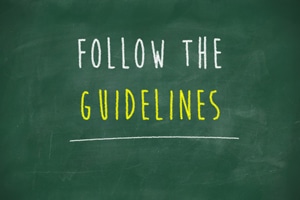
August 30, 2015
Dr. Kendrick, LDL, And Meaningless Guidelines
By Michael D. Shaw
Dr. Malcolm Kendrick, author of The Great Cholesterol Con, divides his time between practicing medicine and educational endeavors. Kendrick, based in Cheshire, England is a founding member of the Centre for Evidence Based Medicine in Oxford and The International Network of Cholesterol Sceptics (THINCS). As noted in this column on previous occasions, the diet/cholesterol theory of coronary heart disease has been in a death spiral for years. Kendrick recently commented on an interesting development.
He cites a Reuters story appearing on August 10th, entitled “Pharmacy benefit manager CVS urges rewrite for U.S. heart guidelines.” The guidelines in question were issued in 2013 by the American College of Cardiology and the American Heart Association, and among other things suddenly de-emphasized the need to reduce low density lipoprotein (LDL “bad”) cholesterol to a specific level.
You may recall that the backing off from LDL shocked people at the time. Did it help or hurt that famed cardiologist Steven E. Nissen said this when the guidelines appeared: “The evidence was never there” for the LDL targets. Past committees “made them up out of thin air.”
The problem now is how to deal with the newly approved PCSK9 inhibitor LDL cholesterol lowering drugs, which can cost more than $1000 per month. Dr. William Shrank, chief scientific officer at CVS, stated that “The current cholesterol management guidelines do not provide clarity as to how these expensive new medications could fit in the treatment paradigm, potentially resulting in some scenarios where a prescriber could consider a PCSK9 inhibitor for a low-risk patient.”
Now, here’s where it gets interesting. No less an authority than Dr. Kim Allan Williams, president of the ACC, told Reuters “LDL may or may not correlate to cardiovascular outcomes.” Say what?
Not surprisingly, Kendrick unloaded on this one: “There is no way on earth that this comment would have been made by mistake. It would have been thought about very carefully indeed. So, what are we looking at here? I believe that what we are looking at here, ladies and gentlemen, is a major repositioning maneuver. For year after year we have been told that a raised LDL is the most important causal risk factor for heart disease.”
“What we had here was an admission, though no one will admit it, that statins reduce the risk of cardiovascular disease through mechanisms other than LDL lowering. This was shortly followed by the AHA admitting that cholesterol in the diet has nothing to do with raising cholesterol and/or causing heart disease. More recently several papers have come out clearly demonstrating that saturated fat in the diet has nothing to do with cardiovascular disease. You would have to say that the diet-heart/cholesterol hypothesis is beginning to look a little threadbare right now.”
Fair enough, but when should PCSK9 inhibitors be prescribed, or when should we worry about LDL? Kendrick did attempt to answer the second question when the 2013 guidelines came out…
“So, your LDL level doesn’t matter in the slightest, unless it is a very high level. Then the level does matter a great deal. Please explain, oh great cardiologists, does LDL, or does it not, cause cardiovascular disease?”
“Well, it seems that it both does, and does not, simultaneously. Amazingly, we have achieved a quantum state with LDL. It simultaneously exists as a molecule that can both cause–and not cause–CVD. Which means, of course, that the levels must be both lowered, and not lowered. Yes, well, this makes perfect sense. At least it would to a lunatic.”
For what it’s worth, the 2013 guidelines are replete with other dubious advice, including the tired old low fat/high carb/low sodium dietary recommendations. Here’s one hilarious excerpt:
In adults 25 to 80 years of age with blood pressure 120–159/80–95 mm Hg, reducing sodium intake lowers BP. Strength of Evidence: High
What is the effect of different levels of dietary sodium intake on blood pressure? In adults 25 to 75 years of age with BP 120–159/80–95 mm Hg, reducing sodium intake that achieved a mean 24-hour urinary sodium excretion of approximately 2,400 mg/day, relative to approximately 3,300 mg/day, lowers BP by 2/1 mm Hg, and reducing sodium intake that achieved a mean 24-hour urinary sodium excretion of approximately 1,500 mg/day lowers BP by 7/3 mm Hg.
Note that even the virtually impossible 1500 mg/day sodium level produces a de minimis reduction in BP. Indeed, I defy you to take two successive readings on the same person that reproduce within 7/3 mm Hg. Never mind that there are dire health effects with a low sodium diet.
Considering that cardiovascular disease is our “biggest killer,” and that billions of dollars are spent in research, all of the above represents nothing less than an epic failure of public health policy. Why does anyone listen to “experts” anymore?
